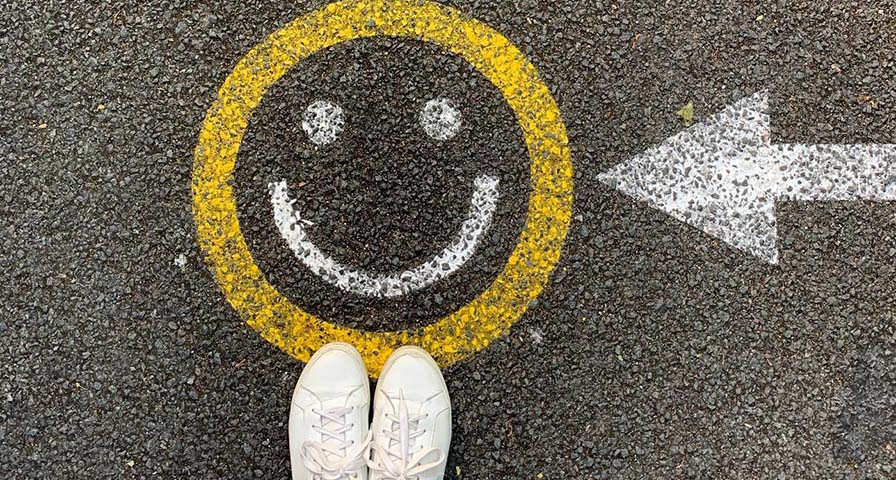Originally published July 9, 2021 by Elemental.
By Robert Roy Britt
Among the most underrated revelations of modern scientific research is the healing ability and protective power of physical activity. And I’m not talking about fixing your body.
Forget that moving more can help you live longer, avoid debilitating physical conditions or even battle chronic pain. Upping your level of physical activity, even by a little, can trigger a mental makeover, potentially making you smarter, less stressed and, yes, happier. Immediately, right now, today — and for the rest of your life. No matter how old you are.
“It is never too late to benefit from physical activity,” says Karmel Choi, PhD, a clinical psychologist at Massachusetts General Hospital and faculty member at Harvard Medical School.
It’s also never too early.
“Physical activity earlier in life may help to prevent the physical and mental health conditions that emerge by mid-adulthood,” Choi says. “However, even older individuals who engage in physical activity may find it helpful for improving existing conditions or preventing poorer outcomes.”
And it doesn’t have to be super hard. As we’ll see, the benefits of moderate physical activity, akin to a brisk walk, accrue with every step you take.
Better than any pill
Physical activity is better than just about any pill for improving your mental well-being, extensive research has shown. Among the lesser-heralded effects: It can help you sleep, which alone will improve your mood. (Exercise can also improve your sex life, but that’s another story.)
But can exercise really make you happy? Scientists will tell you that happiness is notoriously difficult to define and measure, and cause-and-effect is hard to suss out. But there is strong evidence for this link. One review of the scientific literature concluded that people who were “sufficiently active” were on average 29% more likely to be happy compared to inactive people, and “very active” people were 52% more likely to be happy. The relationships held true for children and adults.
“More importantly, even a small change of physical activity makes a difference in happiness,” said study leader Weiyun Chen, an associate professor in kinesiology at the University of Michigan.
During any activity that gets your heart pumping — running, biking, dancing, team sports, or even a stroll around the block — the brain releases endorphins and other feel-good hormones that lead to a more positive mood, improved attention and ability to think more effectively, Choi explains. Choi and her colleagues have shown that each notable bump in activity can result in a 26% decrease in the odds of becoming depressed. A bump, she explains, could be replacing 15 minutes of sitting with 15 minutes of running or an hour of brisk walking or other moderate activity.
“Any movement seems to count, and more movement generally is better,” she tells me.
In other research led by Choi, exercise lowered the risk of depression even in people who are genetically predisposed to depression.
Effects that last a lifetime
The effect of exercise on mood is both immediate and cumulative, says David Tomasi, PhD, a licensed psychologist-psychotherapist and inpatient psychiatry group therapist at the University of Vermont Medical Center.
The feel-good chemicals released during physical activity, which include dopamine, noradrenaline and serotonin, build up over time, so long as a person gets a reasonable minimum weekly amount of activity — about 20 minutes a day or 150 minutes over the course of a week, Tomasi explains in an email. With repeated release of those chemicals, the brain becomes more resilient in dealing with emotions and gets conditioned to positive changes.
“The body learns how to feel better, which is also ‘to get better at feeling,’” he says.
When scientists did a comprehensive review of research, looking specifically at the effects of physical activity done across several years, among people in the United States and five other countries, they found that it can protect against the emergence of depression in children and adults of all ages.
“Regardless your age or where you live, physical activity can reduce the risk of having depression later in life,” said the study’s lead author, Felipe Barreto Schuch, PhD, an associate professor studying physical activity and mental health at La Salle University in Brazil.
If all this motivates you to move more, my work is done here. Just please, for criminy sakes, don’t be motivated by what others think or what society expects. Tomasi has thought a lot about this, and he offers some advice via examples:
“A person has a healthy attitude toward exercise if she exercises in order to feel better, healthier, and stronger,” he says. “An unhealthy attitude the person exercises in order to achieve an aesthetic standard to please someone or something — partner, culture, or society as a whole.”
Learn How the IHT Spirit System Encourages Physical Activity in School-Age Children:





